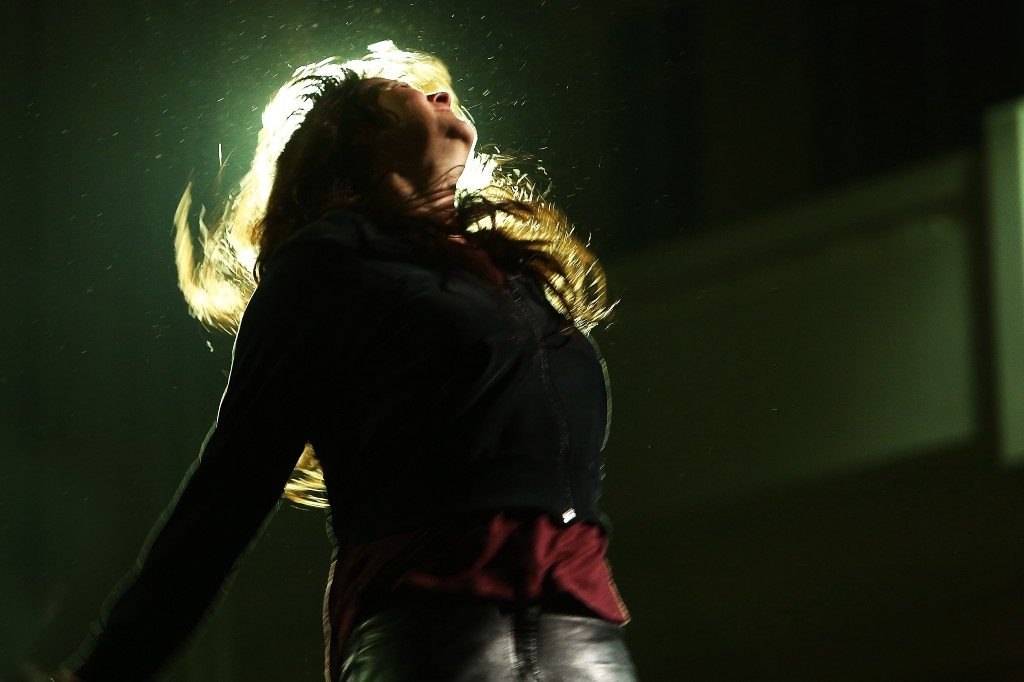Susanna Nicchiarelli has written and directed many short films, documentaries, and two features: “Cosmonaut,” winner of the Controcampo award at the Venice Film Festival, and “Discovery at Dawn.” Nicchiarelli has also made two short animated films in stop-motion: “Sputnik 5,” presented at the Venice Film Festival, and winner of the Silver Ribbon award, and “Esca viva.” “Nico, 1988” is her third feature film and is set for theatrical release on August 1.
“Nico, 1988” will premiere at the 2018 Tribeca Film Festival on April 26.
W&H: Describe the film for us in your own words.
SN: It’s the story of model, singer, and composer Nico, aka Christa Päffgen, and what became of her in the years following the time everybody knows about, when she started her own solo career as a musician. The movie is set in the ’80s, after the experience with the Factory and Andy Warhol, when she had moved to England, and was touring around Europe.
The movie ends in 1988, the year of her death, and it shows how the last years of this woman’s life were — in many aspects — the happiest. It is very, very far from the “typical” rockstar biopic, both in the content, and in the structure.
W&H: What drew you to this story?
SN: The fact that Nico’s life could inspire a very “unusual” kind of biopic. It could give me the possibility to turn completely around the cliché of biopics, in which fame and success are always presented as the only alternative to failure and disappearance, as if a human being’s life could be reduced to these two terms: being famous and well-known, and being completely forgotten and desperate.
This was so very not the case with Nico’s life that telling her story permitted me to show the complexity of life, of an artist’s life, of a woman’s life: Nico’s life happened in between these two extremes, as everybody’s life does, and she did the most important things both artistically and existentially when she was not a celebrity anymore. How interesting can that be? We are used to seeing life through certain clichés that we don’t even notice them anymore, and I knew this film could be different and surprising.
After the ’60s, Nico became an extremely interesting and provocative artist, yet most people seem to think that once her modeling career was over, once she wasn’t the beauty icon anymore, she disappeared. My film proves that version of the story is completely wrong.
W&H: What do you want people to think about when they are leaving the theater?
SN: I want them to think that lives are complicated, that behind the image of a rock star, of a model, of a woman, there is so much more. I want them to relate with Nico’s search of her identity, of her own place in the world, with her relationship with her own past.
I want the audience to relate to her courage, to forgive her mistakes, to leave the theater not with answers but with new questions to ask about their own lives, and about other people’s lives.
W&H: What was the biggest challenge in making the film?
SN: Dealing with reality, with truth: the film is a fiction film but it is based on a true story so I had a lot of material but I also had to be free to create, and my actress had to be free to create her own Nico. This freedom was necessary so that the film could really be universal.
W&H: How did you get your film funded? Share some insights into how you got the film made.
SN: The film is a European co-production — it was funded with European funds, Italian funds, Belgian funds, public incentives, and TV pre-sales.
W&H: What does it mean for you to have your film play at Tribeca Film Festival?
SN: The possibility of meeting the American audience, also through the Q&As. Nico was a European woman but also an American superstar. The story I tell reminds us of her European identity. I am really curious to see the reactions in the U.S.
W&H: What’s the best and worst advice you’ve received?
SN: I don’t know. Advice is always good.
W&H: What advice do you have for other female directors?
SN: Do the best you can and be brave.
W&H: Name your favorite woman-directed film and why.
SN: “Marie Antoinette” by Sofia Coppola — a great way to tell a woman’s story. I loved everything about that film — it’s so unconventional and brave. And “The Future” by Miranda July. It made me laugh and cry at the same time. I love her style and her irony.
W&H: Hollywood and the global film industry are in the midst of undergoing a major transformation. Many women — and some men — in the industry are speaking publicly about their experiences being assaulted and harassed. What are your thoughts on the #TimesUp movement and the push for equality in the film business?
SN: I hope this movement will bring us a step forward towards equality in the business. I know for sure that the country I come from, Italy, is very far behind in these kinds of issues. There are many ways of being harassed which in Italy are not even recognized yet as harassment. There is a form of verbal harassment, a certain way of speaking of women in front of other women that is still tolerated in my country, and that should be condemned.
I strongly believe and hope that this movement might change things: not only give the victims the force to speak, which is of course a priority, but also stop even subtler forms of violence that still need to be recognized as such. Forms of verbal violence that make us feel all the time defective, just because we are women.







